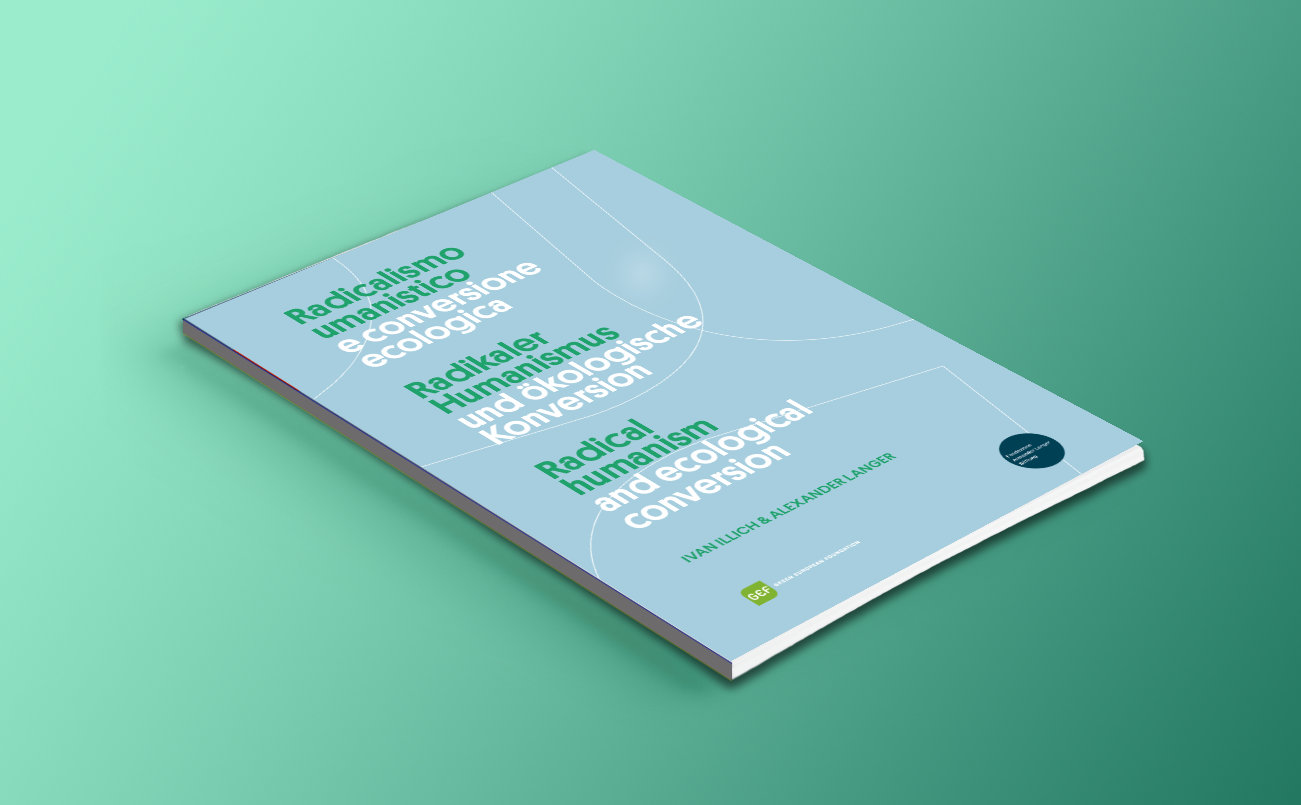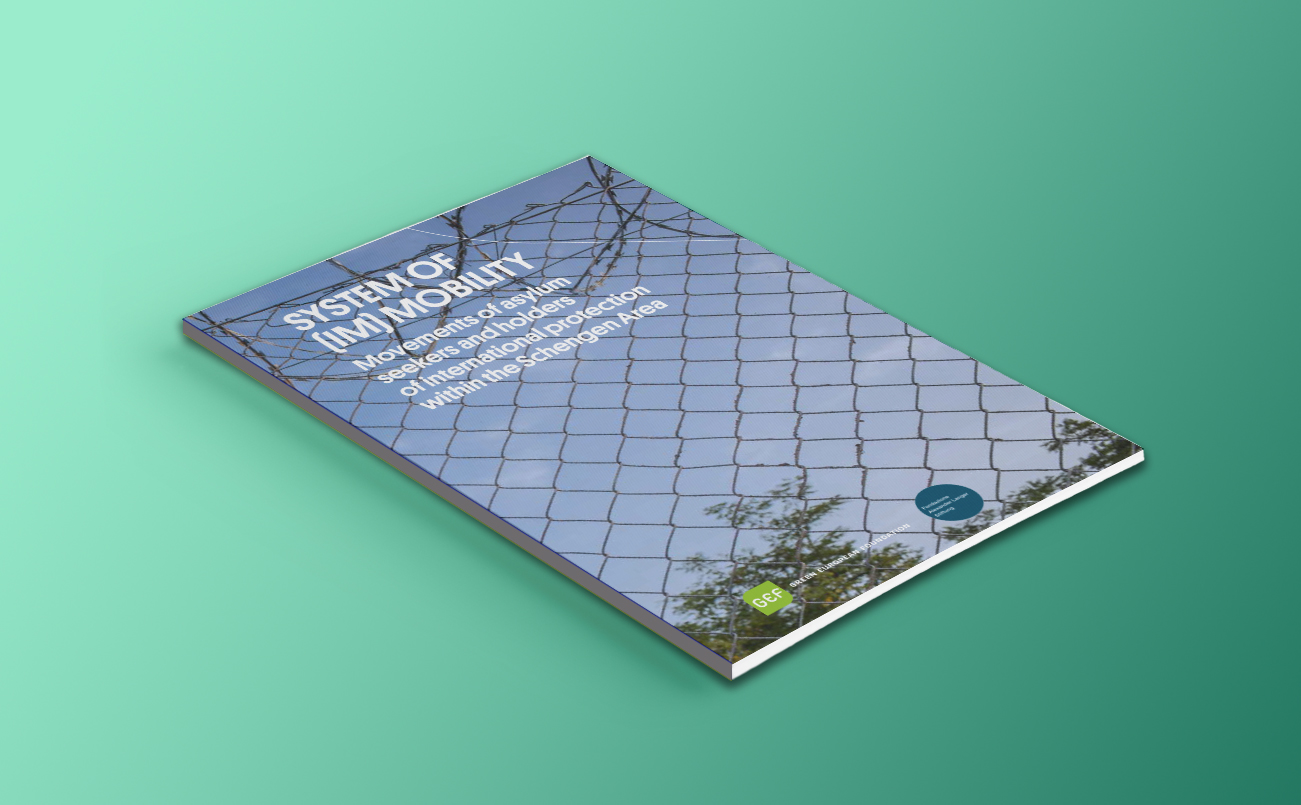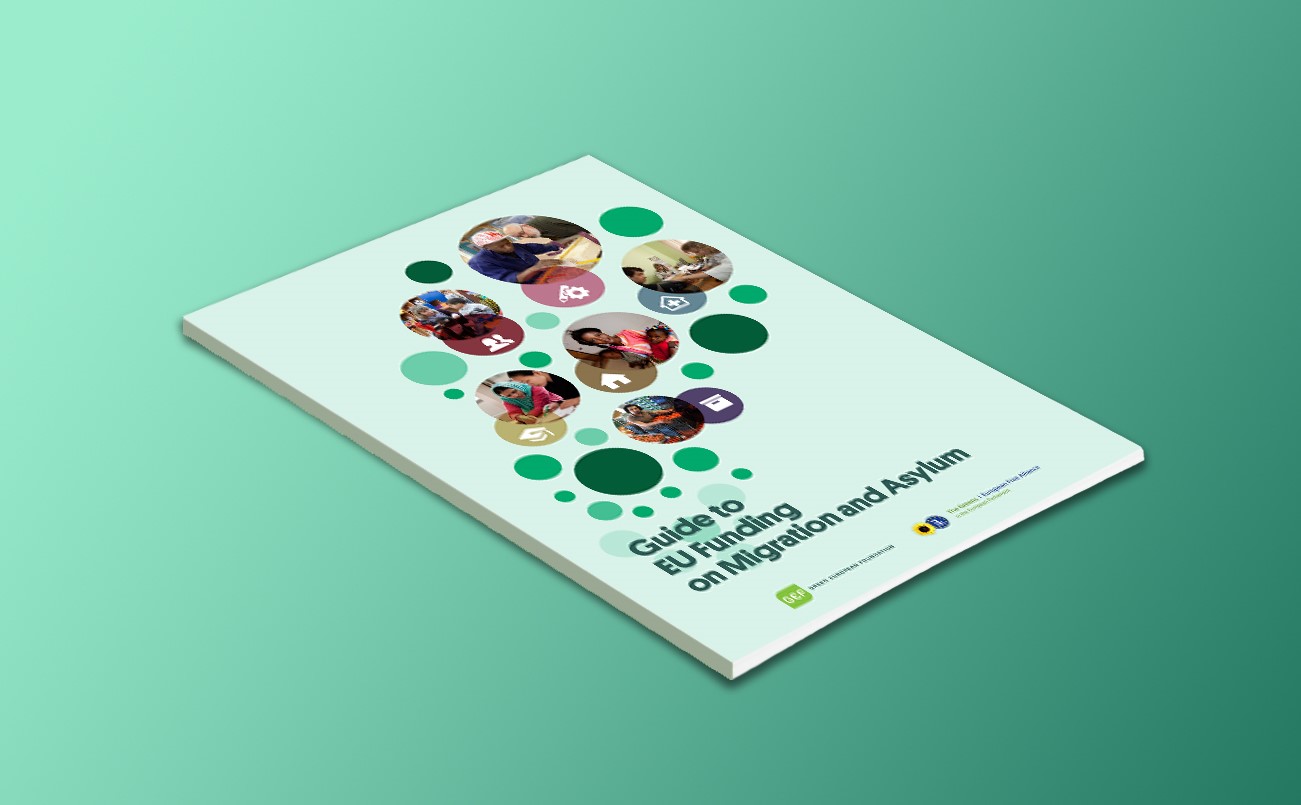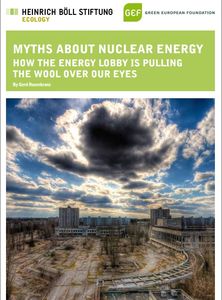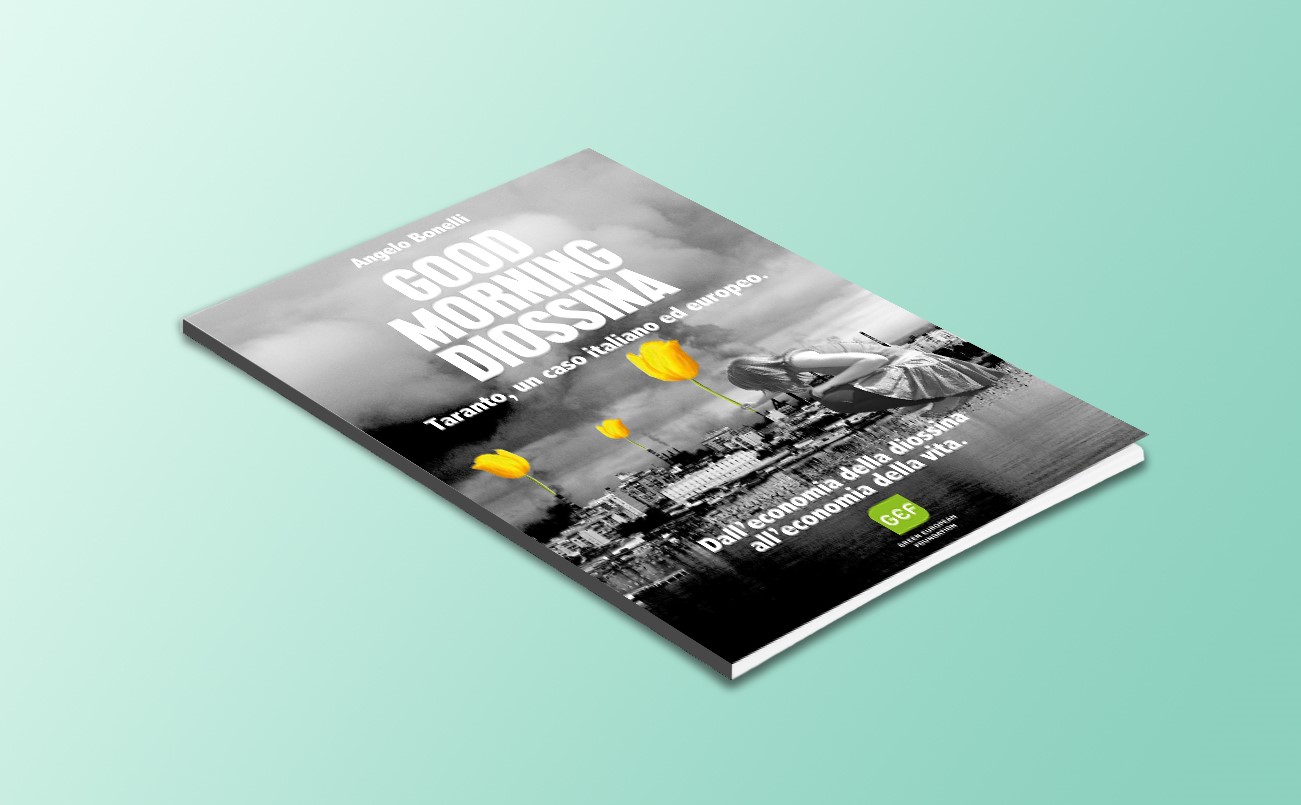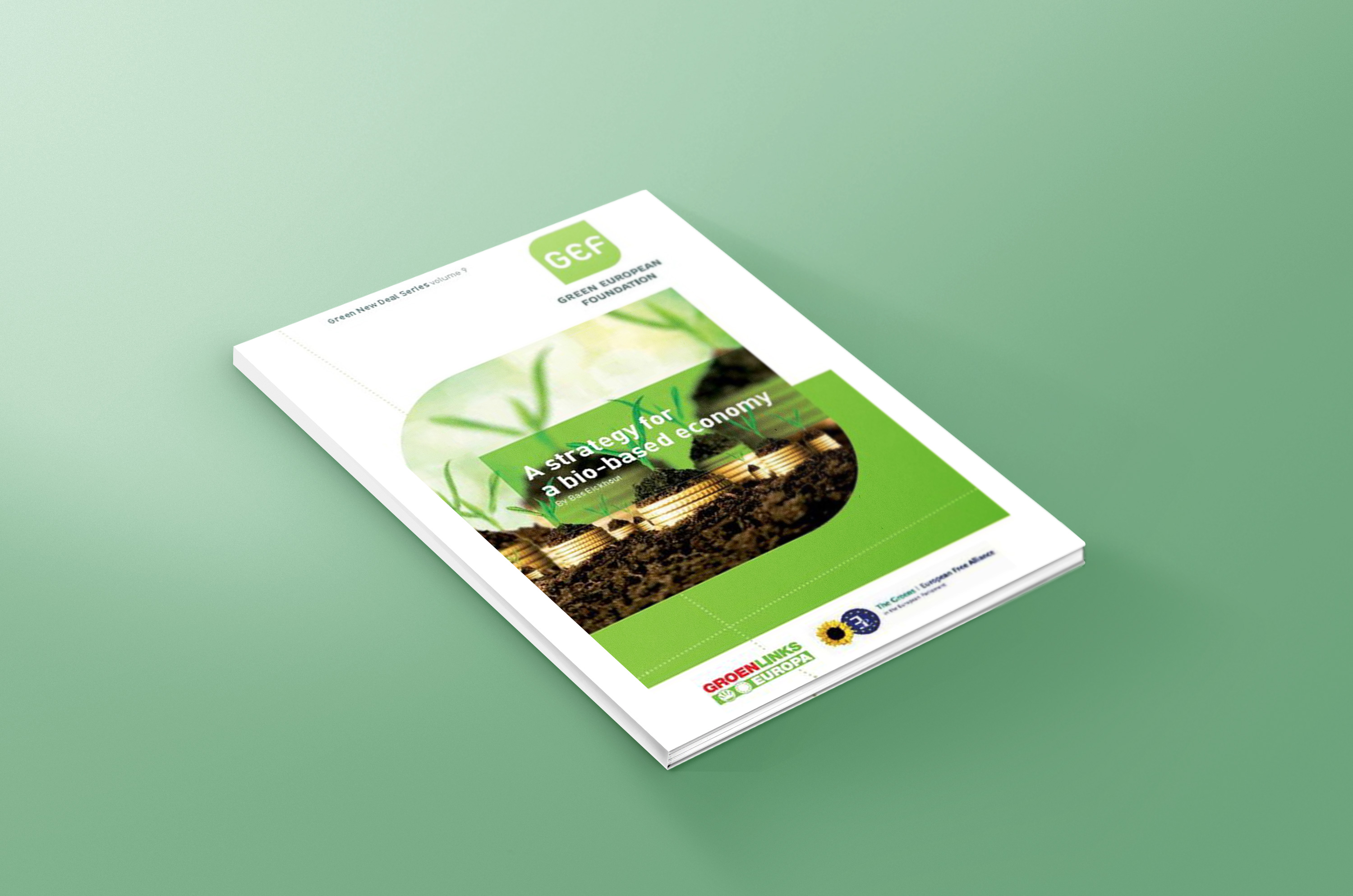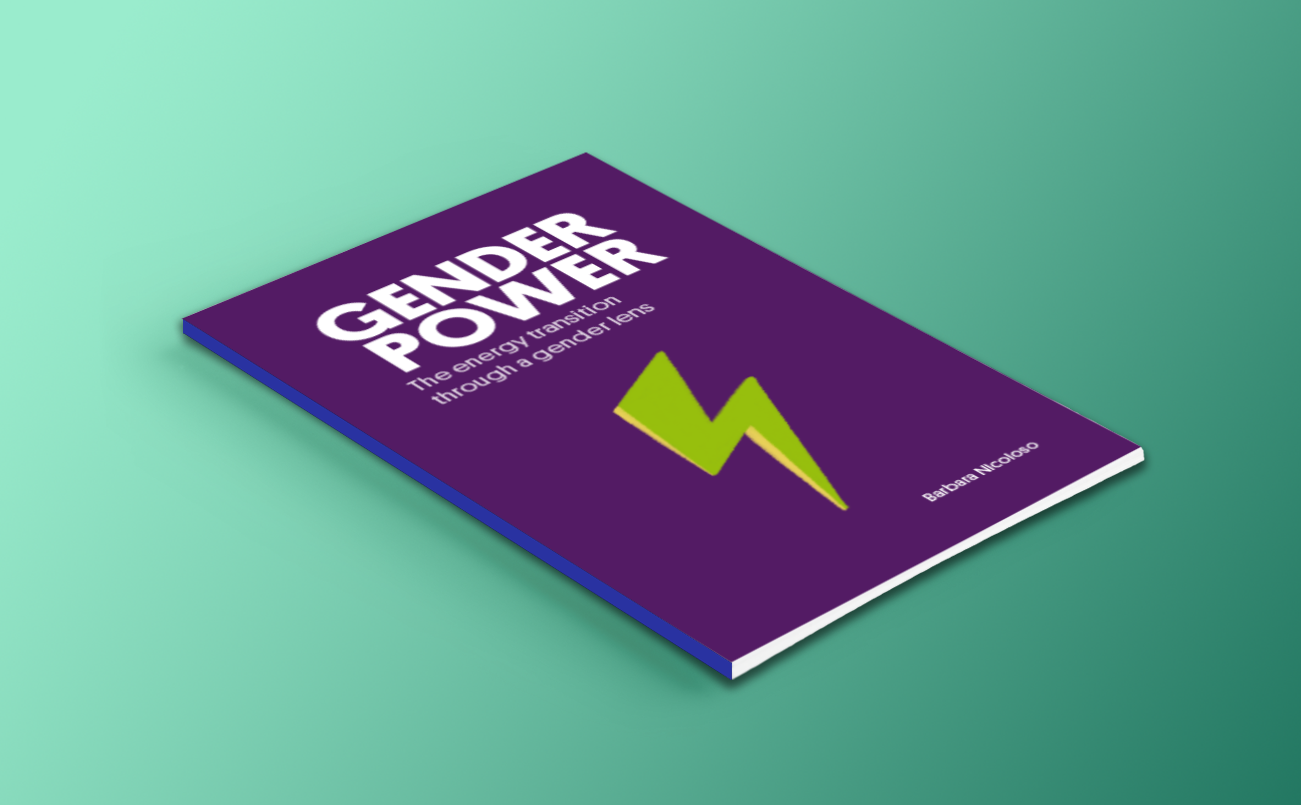
EN (French, Italian and Polish version below):
Gender often remains a blind spot in energy policies of the European Union and its Member States. Yet, our relationships to energy are deeply gendered. Women are, for example, disproportionately affected by energy poverty and climate change, while remaining underrepresented in the energy sector and its governance. These inequalities are rooted in our society’s dependence on fossil fuels and the patriarchal systems that sustain them.
How can we move away from fossil fuels and carry out a socially just energy transition while reducing gender inequalities? In her new essay, Gender Power, Barbara Nicoloso explores the deep historical links between gender and energy and skillfully outlines a path toward an equitable and just energy transition.
About
This essay is divided into three chapters, which take stock of gender inequalities in Europe, analyse the links between fossil fuel energy systems and gender inequalities, and then identify ways of avoiding their reproduction in a model based on sufficiency, efficiency and renewable energy. The aim is also to show how transition policies, and in particular energy sufficiency policies, can be levers for reducing gender inequalities. Finally, we will set out the political conditions necessary for the fight to preserve the environment and the societal fight for gender equality to go hand in hand.
The aims of this essay are in line with those of the Green European Foundation: to move the political and public debate forward, towards a more social and sustainable Europe;
to support elected representatives and local actors in implementing a just transition; to promote inclusive policies to achieve Europe’s climate and energy objectives; and to ensure that the energy transition does not amplify social, ethnic and gender inequalities and can, on the contrary, help to reduce them. The essay is based on the available scientific and institutional literature on the subject, as well as interviews conducted with stakeholders with field actors as part of a Knowledge Community composed of representatives from associations, research centres, local governments, and elected officials. This group met from September 2023 to April 2024 to discuss the gender dimension of the energy transition in both the French and European contexts. This Knowledge Community also led to the publication of the policy brief “Putting Gender at the Heart of the EU Energy Transition”, co-authored by Barbara Nicoloso, which you can find by clicking here.
Author
- Barbara Nicoloso is the director of Virage Énergie and a lecturer at Sciences Po Lille.
Please click here to access the English translation of the essay.
FR:
La question du genre est un angle mort des politiques énergétiques et climatiques actuellement engagées par les États membres de l’Union européenne. Pourtant, les femmes sont plus impactées que les hommes par la précarité, vivent davantage dans des logements de mauvaise qualité, utilisent plus les transports en commun… Tout en étant sous-représentées dans les métiers de l’énergie.
Comment sortir des énergies fossiles et mener une transition énergétique socialement juste en réduisant les inégalités de genre ? Dans son nouvel essai, « Gender Power », Barbara Nicoloso explore les liens historiques profonds entre le genre et l’énergie, et esquisse habilement la voie à suivre pour parvenir à une transition énergétique équitable et juste.
A propos
Cet essai est construit autour de trois chapitres permettant de dresser l’état des lieux des inégalités de genre en Europe, d’analyser les liens entre un modèle énergétique carboné basé sur les combustibles fossiles et les inégalités de genre, pour ensuite identifier la façon d’éviter leur reproduction dans un modèle reposant sur la sobriété et les énergies renouvelables. Il s’agira également de montrer comment les politiques de transition, et en particulier les politiques de sobriété énergétique, peuvent être des leviers pour réduire les inégalités de genre. Enfin, nous exposerons les conditions politiques nécessaires pour que la lutte pour la préservation de l’environnement et la lutte sociétale pour l’égalité de genre aillent de pair.
L’objectif de cet essai rejoint ceux poursuivis par la Green European Foundation, à savoir, faire avancer les débats politiques et publics vers une Europe plus sociale et durable, accompagner les élus et acteurs locaux dans la mise en place d’une transition juste, promouvoir des politiques inclusives pour atteindre les objectifs climatiques et énergétiques européens et s’assurer que la transition énergétique n’amplifie pas les inégalités sociales, ethniques, et de genre et peut au contraire contribuer à les réduire. Il se base sur la littérature scientifique et institutionnelle disponible sur le sujet ainsi que sur des entretiens réalisés avec des actrices et acteurs de terrain dans le cadre d’une Knowledge Community (Communauté de connaissances) composée de représentant.es d’associations, de centres de recherche, de collectivités locales, d’élu.es qui se sont réunies de septembre 2023 à avril 2024 pour discuter de la dimension genrée de la transition énergétique dans le contexte français et européen.
Cette communauté de connaissances a également donné lieu au policy brief « Le genre au cœur de la transition énergétique de l’UE », co-écrite par Barbara Nicoloso, que vous pouvez trouver en cliquant ici .
Autrice
- Barbara Nicoloso est directrice de Virage Énergie et enseignante à Sciences Po Lille.
Veuillez cliquer ici pour accéder à la version française de la publication.
IT:
Il genere rimane spesso un punto cieco nelle politiche energetiche dell’Unione Europea e dei suoi Stati membri. Eppure, il nostro rapporto con l’energia è profondamente influenzato dalle dinamiche di genere. Le donne, ad esempio, sono colpite in modo sproporzionato dalla povertà energetica e dai cambiamenti climatici, pur rimanendo sottorappresentate nel settore energetico e nella sua governance. Queste disuguaglianze sono radicate nella dipendenza della nostra società dai combustibili fossili e nei sistemi patriarcali che li sostengono. Come possiamo abbandonare i combustibili fossili e realizzare una transizione energetica socialmente equa, riducendo al contempo le disuguaglianze di genere? Nel suo nuovo saggio, Gender Power, Barbara Nicoloso esplora i profondi legami storici tra genere ed energia e delinea abilmente un percorso verso una transizione energetica equa e giusta.
Informazioni
Questo saggio è suddiviso in tre capitoli, che fanno il punto sulle disuguaglianze di genere in Europa, analizzano i legami tra i sistemi energetici basati sui combustibili fossili e le disuguaglianze di genere, e infine individuano i modi per evitare che queste si riproducano in un modello basato sulla sufficienza, l’efficienza e le energie rinnovabili. L’obiettivo è anche quello di mostrare come le politiche di transizione, e in particolare quelle di sufficienza energetica, possano essere leve per ridurre tali disuguaglianze. Infine, il testo definisce le condizioni politiche necessarie affinché la lotta per la salvaguardia dell’ambiente e la lotta sociale per la parità di genere possano andare di pari passo.
Gli obiettivi di questo saggio sono in linea con quelli della Green European Foundation: far progredire il dibattito politico e pubblico verso un’Europa più sociale e sostenibile; sostenere i rappresentanti eletti e gli attori locali nell’attuazione di una transizione giusta; promuovere politiche inclusive per raggiungere gli obiettivi climatici ed energetici dell’Europa; e garantire che la transizione energetica non amplifichi le disuguaglianze sociali, etniche e di genere e possa, al contrario, contribuire a ridurle. Il saggio si basa sulla letteratura scientifica e istituzionale disponibile sull’argomento, nonché su interviste condotte con le parti interessate e gli attori sul campo nell’ambito di una knowledge community composta da rappresentanti di associazioni, centri di ricerca, amministrazioni locali e funzionari eletti. Questo gruppo si è riunito da settembre 2023 ad aprile 2024 per discutere della dimensione di genere della transizione energetica sia nel contesto francese che in quello europeo. Questa comunità della conoscenza ha anche portato alla pubblicazione del documento programmatico “Putting Gender at the Heart of the EU Energy Transition” (Mettere il genere al centro della transizione energetica dell’UE), scritto in collaborazione con Barbara Nicoloso, che potete trovare cliccando qui.
Informazioni sull’autrice
- Barbara Nicoloso è direttrice di Virage Énergie e docente presso Sciences Po Lille.
Clicca qui per accedere alla traduzione italiana della pubblicazione.
PL:
Kwestia płci często pozostaje pomijana w polityce energetycznej Unii Europejskiej i jej państw członkowskich. Jednak nasze relacje z energią są głęboko uwarunkowane płcią. Kobiety są na przykład nieproporcjonalnie dotknięte ubóstwem energetycznym i zmianami klimatycznymi, a jednocześnie pozostają niedostatecznie reprezentowane w sektorze energetycznym i jego zarządzaniu. Nierówności te wynikają z uzależnienia naszego społeczeństwa od paliw kopalnych i patriarchalnych systemów, które je podtrzymują.
Jak możemy odejść od paliw kopalnych i przeprowadzić sprawiedliwą społecznie transformację energetyczną, jednocześnie zmniejszając nierówności płciowe? W swoim nowym eseju „Gender Power” Barbara Nicoloso bada głębokie historyczne powiązania między płcią a energią i umiejętnie nakreśla drogę do sprawiedliwej i równej transformacji energetycznej.
O
Niniejszy esej podzielony jest na trzy rozdziały, w których dokonano przeglądu nierówności płci w Europie, przeanalizowano powiązania między systemami energetycznymi opartymi na paliwach kopalnych a nierównościami płci, a następnie wskazano sposoby uniknięcia ich powielania w modelu opartym na wystarczalności, efektywności i energii odnawialnej. Celem jest również pokazanie, w jaki sposób polityka transformacji, a w szczególności polityka wystarczalności energetycznej, może stanowić dźwignię służącą zmniejszeniu nierówności płci. Na koniec przedstawimy warunki polityczne niezbędne do tego, aby walka o ochronę środowiska i walka społeczna o równouprawnienie płci szły w parze.
Cele niniejszego eseju są zgodne z celami Zielonej Fundacji Europejskiej: przesunięcie debaty politycznej i publicznej w kierunku bardziej społecznej i zrównoważonej Europy;
wspieranie wybranych przedstawicieli i lokalnych podmiotów w realizacji sprawiedliwej transformacji; promowanie polityki sprzyjającej włączeniu społecznemu w celu osiągnięcia europejskich celów klimatycznych i energetycznych; oraz zapewnienie, aby transformacja energetyczna nie pogłębiała nierówności społecznych, etnicznych i płciowych, a wręcz przeciwnie, przyczyniała się do ich zmniejszenia. Esej opiera się na dostępnej literaturze naukowej i instytucjonalnej na ten temat, a także na wywiadach przeprowadzonych z zainteresowanymi stronami i podmiotami działającymi w terenie w ramach społeczności wiedzy złożonej z przedstawicieli stowarzyszeń, ośrodków badawczych, samorządów lokalnych i wybranych urzędników. Grupa ta spotykała się od września 2023 r. do kwietnia 2024 r., aby omówić wymiar płci w transformacji energetycznej zarówno w kontekście francuskim, jak i europejskim. Wspólnota wiedzy doprowadziła również do publikacji dokumentu strategicznego „Putting Gender at the Heart of the EU Energy Transition” (Płeć w centrum transformacji energetycznej UE), którego współautorką jest Barbara Nicoloso. Dokument ten można znaleźć tutaj.
Autorka
- Barbara Nicoloso jest dyrektorką Virage Énergie i wykładowczynią w Sciences Po Lille.
Kliknij tutaj, aby uzyskać dostęp do angielskiego tłumaczenia eseju.
Published by the Green European Foundation with the financial support of the European Parliament to the Green European Foundation. The European Parliament is not responsible for the content of this publication. The views expressed in this publication are solely those of the author and do not necessarily reflect the views of the European Parliament.

